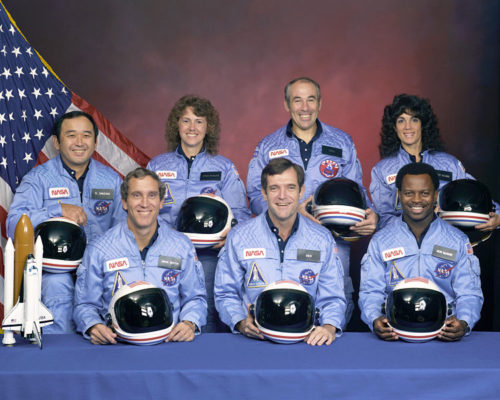
The history of art as a form of human expression is full of provocative moments, with many instances of an artist’s work challenging the morals and views of the times. Indeed, there hasn’t been a time in human history when artistic expression hasn’t been received as an insult to the sensibilities of at least part of the general public and society at large, often poking fun at sensitive social, political, religious, and other issues. From the ancient Greek comedy plays of the 5th and 6th centuries BCE to Time Rice’s and Andrew Lloyd Webber’s Jesus Christ Superstar rock opera of the 1970s, countless works of art from every art form have been heavily condemned, criticized, and ridiculed for their challenging and oftentimes offensive content.
The pop/rock music genre is also replete with bands releasing songs whose titles or lyrics have taken provocation to the extreme, touching or crossing the boundary of “truly sickening.” From Slayer to Eminem to Marilyn Manson, contemporary pop/rock music could be seen as the apotheosis of obscenity. Although this characterisation could not be generalised, for the aforementioned bands aren’t representative of the whole genre by any stretch, they do serve as an example of the power of music and imagery over contemporary culture and the human psyche.
Another artist that has recently earned the “provocative” definition is R&B/pop singer Beyoncé Giselle Knowles-Carter, or better known as Beyoncé. Although nowhere near as provocative and repulsive as the aforementioned music bands, the young singer nevertheless attracted the criticism of the space community for her song “XO,” featured in her latest, self-titled album released in the final weeks of 2013. Better known for songs dealing with female independence, sexual issues, and other erotic love themes, Beyoncé decided in a surprisingly awkward move to incorporate a sample at the beginning of “XO” from the recorded audio broadcast of the STS 51-L Challenger tragedy in 1986.

“Flight controllers here looking very carefully at the situation. Obviously a major malfunction.” These words, voiced by NASA’s public affairs officer Steve Nesbitt, have been carved forever in the minds of millions of Americans and space advocates worldwide, and have now reached a far greater and younger audience through Beyoncé. They were uttered by Nesbitt, following the utterly horrific and tragic disintegration of Space Shuttle Challenger, 73 seconds after lift-off, on Jan. 28, 1986, resulting in the death of its 7-member crew. I was too young to remember the Challenger accident when it happened, but almost 30 years later, I still can’t bring myself to watch any video footage from that launch. The scenes of the shuttle orbiter breaking up, with the solid rocket boosters flying uncontrollably over the skies above Florida through an expanding plume of smoke and debris, haunt me still and will probably do so forever.
Beyoncé forced a lot of people to revisit the memories and the painful feelings associated with that fateful day. One of them was Dr. June Scobee Rodgers, founder of the Challenger Center for Space Science Education and widow of astronaut Dick Scobee, commander of the ill-fated flight, who released a statement following the release of the song on December 16, criticizing the use of the Challenger audio sample: “We were disappointed to learn that an audio clip from the day we lost our heroic Challenger crew was used in the song ‘XO.’ The moment included in this song is an emotionally difficult one for the Challenger families, colleagues and friends. We have always chosen to focus not on how our loved ones were lost, but rather on how they lived and how their legacy lives on today.”
The popular singer also received heavy criticism from many within the space community, including ex-NASA employees, with the space agency’s Public Affairs Office issuing a response: “The Challenger accident is an important part of our history; a tragic reminder that space exploration is risky and should never be trivialized. NASA works everyday to honor the legacy of our fallen astronauts as we carry out our mission to reach for new heights and explore the universe.”
Video Credit: Challenger Center for Space Science Education
Negative publicity isn’t a bad thing in music and show business, with many artists and celebrities regularly feeding off it to build their careers. Nevertheless, Beyoncé addressed the criticism by issuing a statement on ABC News, saying “My heart goes out to the families of those lost in the Challenger disaster. The song ‘XO’ was recorded with the sincerest intention to help heal those who have lost loved ones and to remind us that unexpected things happen, so love and appreciate every minute that you have with those who mean the most to you. The songwriters included the audio in tribute to the unselfish work of the Challenger crew with hope that they will never be forgotten.”
It is unknown whether Beyoncé was knowledgeable of the Challenger accident as a whole and the meaning of the audio sample in particular, in context with her own song’s meaning. As a professional artist and songwriter, it is required that she has knowledge and understanding of the meaning of anything included in her recordings—and ability to take responsibility for it following its release. Despite the controversy that the song helped to generate, many among the general public were sympathetic of the singer. Forrest Wickman, writing for the Slate online magazine, defended Beyoncé’s choice, arguing that “ … a simple glance at the lyrics explains why the sample is in the song. It isn’t about ‘a girl in a relationship.’ It’s about mortality, and about the urgency of spending time with the ones you love before you lose them, because you never know when that could be. The choice to use space shuttle imagery to convey this kind of sudden loss isn’t senseless, either. Beyoncé has used such metaphors to describe her relationship with Jay Z for years, perhaps most notably on ‘Lift Off,’ which uses a sample of the Apollo 11 launch, as well as on ‘Rocket’ and ‘Countdown.’”

Artistic freedom and the right of free expression are prerequisites for a free and sophisticated society. “Whatever the artist’s standard of excellence is, it is not pleasing the public,” writes Howard Richards, professor of Peace and Global Studies and Philosophy at Earlham College of Richmond, Ind., and author of The Social Responsibility of the Artist. “Instead, it sets him apart from the public as an independent force. If it were not so, he would lack integrity, and for this reason, he would not be an artist.”
Yet, as much as freedom of expression and artistic integrity are the foundations of a free society, so is an artist’s responsibility toward society. “The social responsibility of the artist, is to improve the public’s taste,” comments Richards. “The artist is not dominated by the public’s taste; he acts upon it. The effects of his actions may be good or bad. And to say that the effect of the work of the artist on the public taste may be good or bad, is equivalent to saying that it is the responsibility of the artist to improve the public’s taste.”

Having taken part in theatrical shows performing on stage as a dancer, I can understand the importance of Richard’s words. In the shows that I have participated in, the director and choreographer wanted to touch upon and comment on the evolving ethics and sensibilities of the Greek society through the years, while reflecting on societal tragedies and painful incidents that had affected these ethics and the country’s course as a whole. The goal was to treat the subject matter with respect and sensitivity, without trivialising or making fun of it. For that matter, these experiences on stage have been some of the most instructive and fulfilling of my whole life.
Seen in this light, criticism of Beyoncé’s usage of the Challenger audio sample as being “tasteless,” “offensive,” and “obscene” can be justified. If the singer had “the sincerest intention to help heal those who have lost loved ones,” then her intention, as honest as it may be, really fails characteristically. If Beyoncé wanted her song to act as a tribute to the “unselfish work of the Challenger crew,” then the song’s lyrics dealing with the loss of an erotic relationship and subsequent break-up reveal no such intent. If she had recorded a song with lyrics dedicated to the Challenger accident, the singer would have met her goal. The way the audio sample was used makes it seem like it was added because it just sounded “cool” and “catchy,” and served as fodder for a brainless audience that just doesn’t care. It just shows an artist who is ignorant of the meaning of Challenger’s last, fateful flight and its crew and of the magnitude of the whole tragedy. It shows a singer who is indicative of the mainstream pop music industry. An industry with an unimaginative and shallow character, interested in cheap thrills, greed, and money-making sensationalism, trying to come off as “deep and artistic,” but instead seeming cheap and lacking.
Beyoncé’s statement serves only as a lip-service to the meaning and impact of the Challenger accident, showcasing a pop culture that is ignorant and largely apathetic of the successes and failures of one of humanity’s greatest and noblest endeavours. And since the relationship between the artist and the audience, especially in the music industry, forms a closed loop with one feeding and influencing the other, Beyoncé’s ignorance and apathy is indicative of that of the general public and contemporary society at large. “What we do in space just isn’t as important to young people today,” commented retired NASA astronaut Clayton Anderson, following the release of Beyoncé’s song.

“The artist acts upon the taste of the public,” writes Richards.“The audience is a field where the fruit of his work ripen. Effects occur in the lives of the viewer, the reader, the listener, that are partially caused by the artist … The artist invents emotion.”
If Richard’s words hold true, and the audience is a “field where the fruit of the artist’s work ripens,” then the huge lack of taste and class that characterises a big part of the contemporary pop music industry today, coupled with the prevalence of meaningless sensationalism, dumbed-down and brainless lyrics, and water-thin and vacant personalities, are truly indicative not only of the modern music industry’s identity, but of the mainstream, popular culture’s one as well.
And that’s a tragedy bigger than Challenger’s.
The opinions presented in this article belong solely to the author and do not necessarily represent those of AmericaSpace.
Want to keep up-to-date with all things space? Be sure to “Like” AmericaSpace on Facebook and follow us on Twitter: @AmericaSpace




Leonidas, you are our voice, the voice of the space exploration advocacy community. Your exceptionally well-written works glisten with the crystal-clear purity of truth, honesty, honor, integrity and intelligence. Rarely in this age of tweets and twitters does one have the opportunity to enjoy the skillful writing of one possessed of such eloquence and mastery of the language. If you are an example of what the Greek educational system produces, we need to send our students to Greece! Thank you Leonidas, it is a pleasure, and a privilege, to read your marvelous written artwork. BRAVO MAESTRO!!
I’m really humbled and moved Karol, for having my writing touch other people such as yourself, in the way that you have described! Thank you for being such a dedicated reader here on AmericaSpace!
With the most kind and warm regards,
Leonidas
Question – did you object to the use of that same audio clip during the opening to the movie “Contact”?
If not, what’s the difference between “Contact” and the Beyonce song?
Based on the loaded words in your article (as well as its title), I conclude that what you’re really complaining about is today’s pop culture, and not the use of the audio clip.
I can read “get off my lawn” rants all over the internet. I don’t want them here. I come here for well-written articles about America’s great history in space.
Dear Doug,
My intent while writing the article was not to shout ‘get off my lawn’ or anything similar. I’m sorry if it was interpreted as such.
They say that someone is defined not by his thoughts and intents, but by his actions. And Beyoncé’s treatment of the subject has been clamsy and disrespectful at the very least. ‘Contact’ on the other hand, was a very serious attempt on dealing with very hot and controversial issues like religion, the nature of being human and our sense of purpose and it succeded admirably. On this regard, it can’t be compared with ‘XO’.
Your’re right, the criticism expressed, wasn’t towards the use of the audio clip per se, rather it was directed towards today’s pop culture and artists who often times trivialise and dumb down some serious things, while acting like they’re being ‘deep’ and ‘thought-provoking’. So often they manage to have the exactly opposite result, leaving a bad taste in the audience’s mouth. The whole article can be read as a complain about this attitude of the modern pop culture, and towards artists, to give more thought and care while dealing with issues that they want to treat seriously as they proclaim. On a deeper level beyond Beyoncé, the criticism was expressed towards a general public that is highly oblivious and apathetic towards the space program as a whole, whose future is largely based on the support of this apathetic public. The current state of indifference, doesn’t hold much hope about the space program’s future.
As I stated in the article, I did not oppose the usage of the clip itself, rather the way it was used. My personal opinion is that it was insensitive to the subject, made more evident by the fact that the song itself didn’t have any relevance to the Challenger accident. I would really be in favor of the audio sample being used in the context of a song, whose lyrics paid some tribute to the accident, and not been used as a ‘filler’ that sounds ‘catchy’.
Your’re also right, that AmericaSpace is a place for someone to read about America’s great history in space, and about its present and future as well. And the use of the audio clip by Beyoncé, was very relevant to a very difficult and sensitive part of that history. Seen in that light, I felt that the article had a place here.
With kind regards,
Leonidas Papadopoulos
Leonidas,
Thanks for taking the time to reply.
I am not normally so short and rude in my posts, and I have been pondering why your article provoked me so. I think I have figured it out.
First, let me see if I can summarize your article and followup post.
“Beyonce used an audio clip from the Challenger accident in a trivial pop song. While artistic freedom is important, this trivializes the tragedy, and influences people who hear the song to think of the space program as trivial. In my opinion, this is a tragedy worse than the Challenger accident.”
In my opinion, I find this viewpoint offensive in several ways.
– “Trivial” art. What makes art “trivial”, or “tasteless”, or “obscene”? And suddenly we are faced with the age-old question “What is Art?”. We’re not going to settle it here, but I will point out that your opinion is yours alone, not some absolute judgement rendered by the Supreme Court of Art. You don’t get to call a song “trivial” in an absolute sense.
– Inappropriate use of the audio clip. Again, you don’t get to decide whether Beyonce’s use is inappropriate. It doesn’t belong to you, it belongs to all of us. It’s part of our shared culture. More specifically, it belongs to Beyonce too. I will also point out that the argument that it’s too soon to use this audio clip probably expired twenty years ago.
– Impact of the song on our nation’s youth. Personally, I’m happy that the youngsters are being reminded of this tragedy. I think it’s appropriate that Nesbitt’s words have entered the cultural lexicon as a shorthand for “terrible tragedy”, the way Armstrong’s “The Eagle has landed” conveys “transcendent triumph”. I think it’s appropriate that the nation’s space program generated both of these icons, representing our best and worst moments.
– Your use of Challenger photographs in your article. You criticize Beyonce for using Challenger disaster media in one of her works, and then you go and do the same thing? You even trivialize the accident itself by saying that this whole issue is “a tragedy bigger than Challenger’s”. Did seven national heroes die because Beyonce wrote a song? What would Dr. June Scobee Rogers think of your comparison?
– “Get off my lawn.” Each new generation, of every culture, strives to distance itself from its parents – and every generation of parents reacts poorly. Flappers, Elvis, Beatles haircuts, rock music, Gen X, Beyonce and her ilk. It’s all the same process – our culture is alive, and it grows and changes. To do otherwise would sentence us to a world like the regime that oppressed Vann Nath, where nothing new is allowed. Your over-the-top condemnation of a pop song (or, “pop culture in general” if you prefer) as being worse than flaming death on national TV is about as curmudgeonly an attitude as I’ve ever seen, placing you squarely in front of your house and yelling at trespassing kids.
I think that’s about it. I apologize for any intemperate language and lapses of courtesy on my part. I got riled up. Good art will do that to a person, sometimes.
– Yours, Doug
Doug,
I’d like to thank you for your kind reply as well. You make some really good points and rest-assured that I wasn’t insulted by your comments. From your reply, I got the impression that the meaning I wanted to convey on the article was misinterpreted. I’m sorry if that’s the case. Opinion articles are tricky, and often people may feel offended or disrespected. I tried to avoid that while writing the article. I’ll try to clarify things, in the hope that there will not be any misunderstadings left.
I would agree with your summary of the article as you have understood it 100%, were it not for one part: “…a trivial pop song”. I didn’t mention anywhere in the article that Beyonce’s song was trivial per se. The word ‘trivial’ was only used for the way that I personally perceived that Beyonce has used the audio sample. Nowhere in the article did I mention or tried to present pop music as ‘trivial art’.
Actually? I really love the pop music genre, my favorite era of which are the 1980’s. Also, I practice latin and ballroom dances as an amateur dancer, in addition to the pop/disco/electronic genres as well. Having said that, indeed it would be nonsensical on my part to come off as a Supreme Court judge on a high horse, condemning everyone else. The words ‘tasteless’ and ‘obscene’ weren’t meant for Beyonce’s music per se, neither for contemporary pop music itself. Rather they were used for the way I perceived the audio sample to have been used, which I really found tasteless. It doesn’t mean that I find the song ‘XO’ itself to be ‘obscene’ and ‘tasteless’. Actually I think it’s an OK song, considering the music trends of today. I have heard better songs, but that doesn’t mean I find it trivial or worthless. And I really like pop songs that deal with erotic and sexual themes. Remember Madonna’s ‘Justify my love’? It created so much controversy when it came out 20+ years ago, yet it’s a favorite of mine! There’s nothing trivial about these types of songs. But my personal opinion is that the audio sample has no place in that particular song, because they way it is used, it equates a fatal tragedy with an erotic break-up, and that is what I find tasteless.
And you’re perfectly right, it is just my personal opinion. Beyonce stood behind the usage of the audio clip, even though the families of the Challenger crew were offended. It’s her constitutional right to have freedom of expression (and I wouldn’t want it any other way) even though her freedom of expression offends someone else, as was the case of the families of the Challenger crew. At the same time, she should be prepared to receive some criticism that might sound offensive to her as well. After all, everyone else enjoys the same rights as she does, as well.
You’re asking a very good question: What is considered trivial and obscene art? It’s not for me to be the judge of that. Whatever opinion I may have concerning this, is only my own, and I don’t expect it to be the law of the land. And that wasn’t a question I wanted to address anyway. At the beginning of the article, I posted a link detailing examples of pop/rock/metal songs that are really considered ‘obscene’ by many different groups of people, and I made a clear mention in the article, that Beyonce’s music can’t really be put in the same category, or labeled ‘obscene art’ by any stretch.
Let me give you an example of ‘obscene art’ as I personally perceive it. Please read the lyrics of the song ‘Angel of Death’ by the thrash band Slayer. It deals with the Nazi ‘physician’ Josef Mengele and his grotesue experiments on human beings. The lyrics describe in detail Mengele’s horrific experiments. Even if you don’t have a Holocaust survivor among your family or friends, how would you describe the song? If you say that thrash metal and Slayer cannot be considered music, then you’d be falling at the same trap of judging what is art and what isn’t. And the subject of this Slayer song (Nazi Germany, WWII) belongs to all of us. It’s part of our shared global culture as well. If Slayer or someone else, published a song detailing the 9/11 events, or a group rape of a woman for instance in such grotesque detail, would you find it tasteless and offensive or not? The right to freedom of expression is a double-edged sword. It applies to the artist and it also applies to the audience, who has the right to express its opinion on the artist’s creation as well.(And this criticism towards Slayer and metal music comes from a former metalhead, yours trully).
About your comment on using Challenger media for the article, I failed to understand what you meant by that. Again, I would really be in favor of Beyonce making a tribute song to the accident, even using the whole video footage of the launch on her videoclip as well.
Last but not least, I’m all for every new generation distancing itself from the previous one. I did it as well and I’m still doing it today. My phrase “That’s a tragedy bigger than Challenger’s”, was aimed towards the shaping of the general public’s sensibilities, by a shallow and trivial pop culture (and not only the music culture), that creates individuals who are brainless consumers instead of thinkers and skeptics. And that also results in indifference and apathy from a big part of the public today for space exploration in particular, and for a host of other important things in general as well. When I view people younger than me, walking around with an iPad in hand, saying ‘Who cares?’ or ‘That Challenger crew had it coming, they should have stayed home’, I consider that a tragedy bigger than the accident itself – and my saying that, is not trivialising the death of the Challenger crew, but honoring it. And this ‘who cares’ attitude, I see it all the time, online and in real life. It’s not something that I have made up.
I could go on mentioning other things from youngsters that I find tragic as well, like ‘We didnt really land on the Moon, it was all a hoax’, but that’s a different subject altogether. For that reason and more, I continue to stand behind my definition of a trivial and tragic pop music industry and culture, that is replete with shallow personalities. If that offends those executives and artists in show biz, I’m sorry, but I’m also constantly offended by the tasteless things that the show biz throws at me through the media and the news everyday.
I hope I have covered your questions somewhat and that I have helped to address any misunderstandings. Thank you for your kind comments again, and for giving me the chance to clarify some things.
Sincerely,
Leonidas